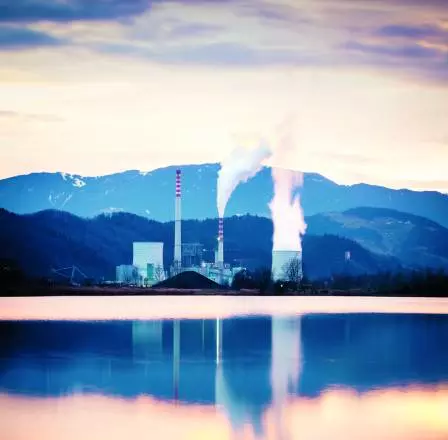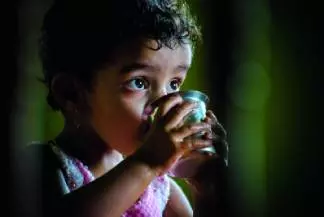The ecological transformation cannot happen and food security is not possible without optimal water resource management to protect water quality.
Water and energy: a strained relationship
The successful transition to carbon-free energy also depends on the thrifty management of water resources, cautions the International Energy Agency (IEA). In the report Introduction to the water-energy nexus published in March 2020, it analyzes Water and Energy interactions in order to separate the growing demand for electricity from that associated with water.
Water is widely used in electricity production to cool industrial facilities, in the extraction of mineral raw materials, and in the irrigation of crops for producing biofuels.
If it is poorly handled, the energy transition can contribute to heightened water stress: certain alternative energies or techniques such as biofuels or carbon capture are proving to be extremely water-intensive. In China, for instance, intensified water stress, primarily due to climate change and accelerated urbanization, is having repercussions on cooling technologies, which are still largely based on electricity production from fossil fuels.
On a global scale, the IEA also points out the growing drinking water production capacities using seawater desalination and wastewater treatment techniques, which consume a great deal of electricity. It warns that:
Over the period to 2040, the amount of energy used in the water sector is projected to more than double.

Ecological transformation: water and food security, the same battle
Preserving water quality and ensuring food security are part of the same battle. As we are reminded by the authors of the collective work edited by Patrick Caron and Jean-Marc Châtaignier Un défi pour la planète (A challenge for the Planet), which was published in 2018 but is still relevant today: there is no shortage of water on earth; it is access to drinking water and sanitation that remains difficult for some 2.4 billion people, according to the OECD.
Poor water quality due to a lack of investment in renewing obsolete or building new infrastructure will lead to malnutrition and disease.
This is aggravated by the fact that the lack of food and water affecting the poorest populations arises in the same geographical areas.
Guaranteeing healthy food for all (Sustainable Development Goal no. 2), while developing a responsible farming sector and providing as many people as possible with access to water and sanitation (SDG6), are closely correlated goals to be taken into account if we wish to fulfill the ambitions of the UN 2030 Agenda,

points out Patrick Caron, a researcher at the French Agricultural Research Centre for International Development (CIRAD) and Chairperson of the High Level Panel of Experts on Food Security and Nutrition of the UN Committee on World Food Security.


